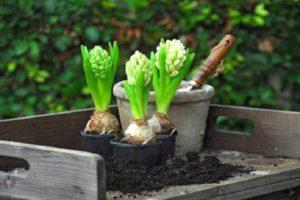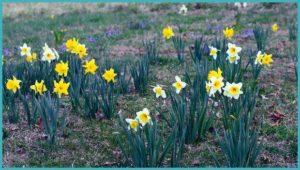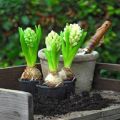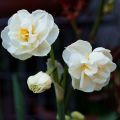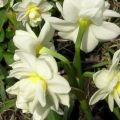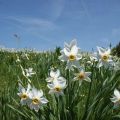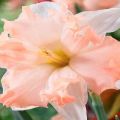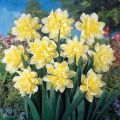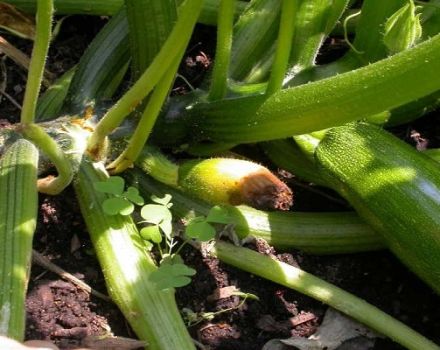Description and characteristics of the Minnow daffodil variety, planting and care rules
Narcissus Minnow (Minnow) is a bulbous plant with graceful flowers, sitting several pieces on one peduncle. It belongs to the first spring flowers. Prefers sunny areas, fertile soil and watering in case of prolonged drought. The bulb can be in one place for up to 5 years, every spring delighting flower growers with delicate and fragrant flowers. The Minnow variety is also suitable for cutting.
Description and characteristics of Narcissus Minnow
Narcissus Minnow is a bulbous plant 15-20 centimeters high. Belongs to the Tacetny group. This plant has narrow long green leaves, creamy white 6-petal flowers with a yellow crown in the middle. Usually 4-8 small flowers grow on one peduncle. The size of one is 2.5 centimeters in diameter. Daffodils bloom in early spring, bloom for 2-3 weeks, filling the garden with a heady aroma.
Main advantages and disadvantages
Variety advantages:
- frost resistance;
- regular flowering;
- quick adaptation to any weather conditions.
Disadvantages:
- needs watering in drought;
- because of the lush inflorescences, the peduncle may break.

The subtleties of growing a plant
Minnow can be planted in a flower bed. A flower can stay in one place for 3-5 years.
When and where to plant
Minnow bulbs are planted in a flowerbed before winter, that is, in September-October. Before the onset of frost, they must take root. Daffodils can grow in full sun and partial shade. These flowers prefer loamy or sandy loamy soils of neutral or slightly acidic acidity. The land where the daffodils will be planted should be fertilized with humus and diluted with peat. The landing site should not be flooded with water after rains.
Preparation of planting material
The bulbs are dried before planting, carefully examined. All rotten spots are cleaned, sprinkled with charcoal and treated with a fungicidal agent.
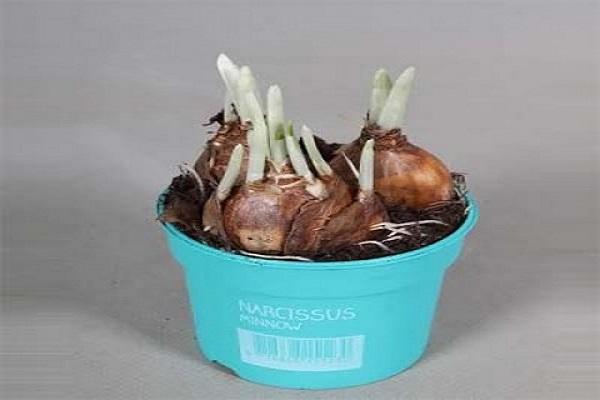
Planting process
Before planting, the bulbs prepare the ground: clay soils are diluted with peat and sand, the lungs are fertilized with humus. Lime or dolomite flour is added to too acidic soil. Daffodils are planted in groups. The bulbs are buried in the ground to a depth equal to three of their diameters. To the neighboring plant should be more than 10 centimeters.
Further care of the variety
Daffodils adapt well to any weather conditions and will sprout every year, even if you completely forget about them. True, in order to get a beautiful flower in the spring, you need to pay a minimum of attention to the plant in summer.
Watering and fertilizing
The Minnow variety is very moisture-loving. If the spring is dry, it is advisable to water this flower 2 times a week. Watering is carried out during the flowering period and for one month after flowering. At the beginning of spring, daffodils are fertilized with nitrogen substances. During the formation of buds, potassium-phosphorus additives are added to the soil.

Mulching and loosening
It is advisable to loosen the soil in the flowerbed after each watering. Grown weeds must be removed. It is advisable to pick off the faded flowers. You do not need to touch the leaves, they should turn yellow and dry on their own. Before the onset of cold weather, the land can be mulched with humus or peat.
Pruning and preparing for the winter season
After flowering, only flowers and peduncles are removed. The yellowed leaves are not touched until they are completely dry. In order for the flowerbed to have a beautiful appearance, other flowers (peonies) that bloom later are planted near the daffodils. They drown out faded plants with their green foliage. Minnow daffodils can hibernate without shelter.
In northern latitudes, before wintering, it is better to mulch the soil with humus or peat.
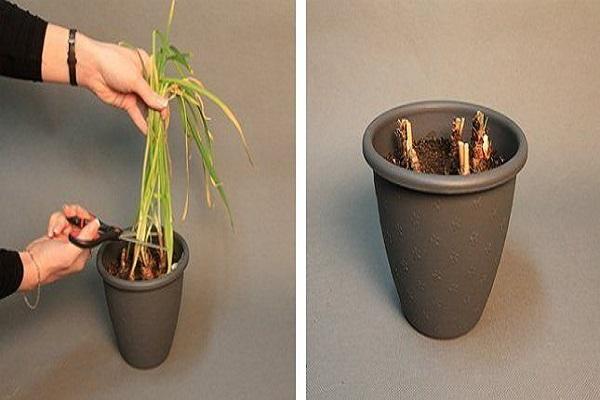
Disease and pest control
The Minnow variety is characterized by resistance to various fungal diseases. The plant will not hurt if it is not flooded with water and fertilized 2-3 times with complex fertilizers during the growing season.
For the prevention of fungal diseases (fusarium, bulb rot), daffodils at the beginning of the growing season can be treated with a fungicide (Fitosporin-M, Fundazol). Insecticides (Actellik, Oberon, Vidat, Zolon) save from insect pests (tick, nematodes, daffodil fly).
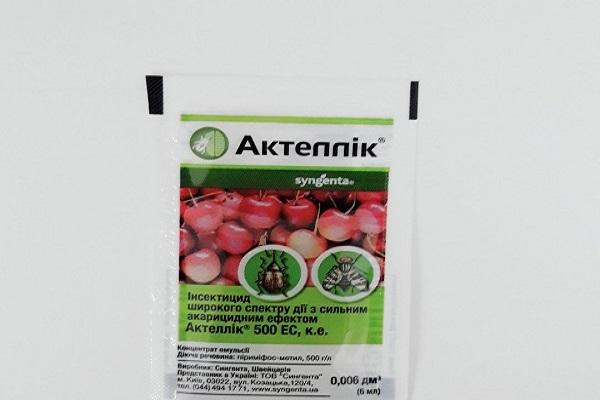
Culture propagation methods
The Minnow variety propagates vegetatively. Babies are formed around the mother's bulb. In the fall, they can be separated and planted as independent plants. The seed method is not recommended.
Most hybrid plants do not inherit the original characteristics of the variety when propagated by seed.
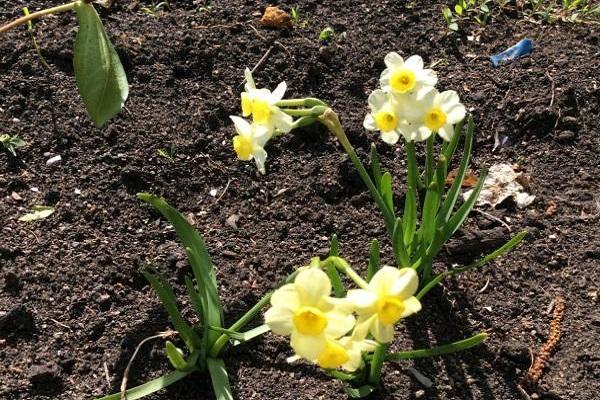
The use of botanical daffodils in landscaping
The Minnow variety is planted in flower beds in small groups (5-10 daffodils). These flowers are usually used in group compositions. Tulips, hazel grouses, hyacinths, primrose, pushkinia, anemone are planted next to daffodils. These plants bloom at approximately the same time. Later, brunner, aquilegia, daylily, peonies, irises bloom. The Minnow variety is planted in rock gardens, in flower beds, near curbs.
